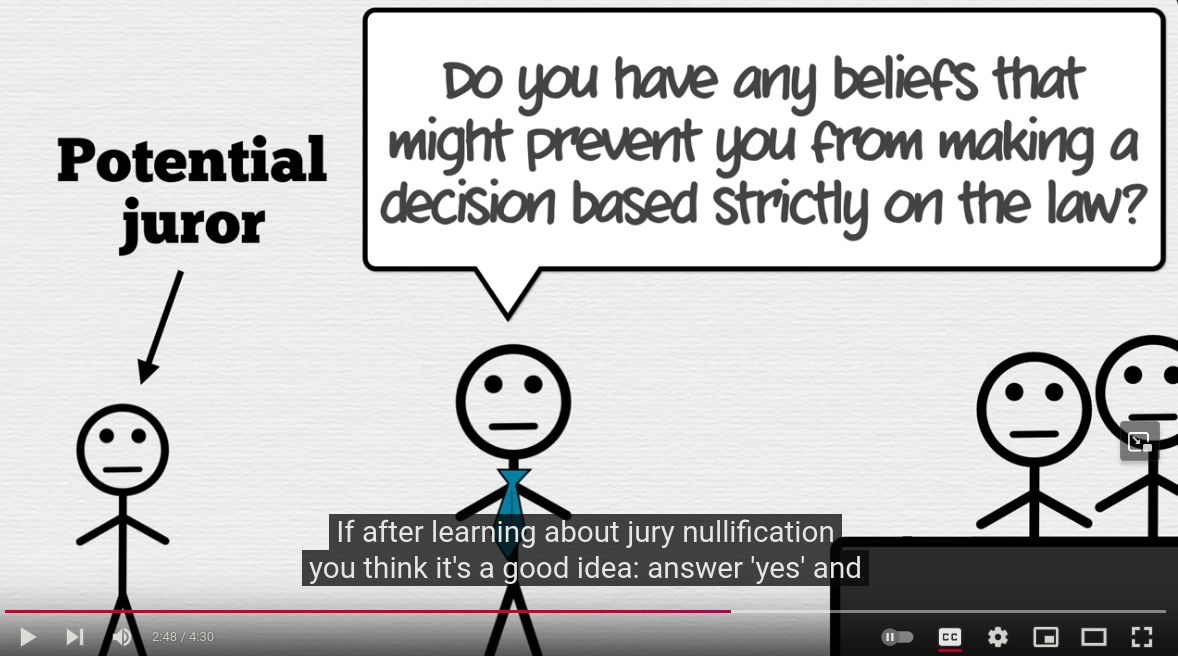I like that, but there is a major problem with it, and it’s around 2:49 in the video:
Do you have any beliefs that might prevent you from making a decision based strictly on the law?
Grey suggests that saying “No” with intent to nullify is lying, and therefore perjury. He is wrong. Where legislated law and constitutional law come into conflict (and they do in all cases of nullification), it is your duty to strictly follow constitutional law. You must judge the case as a layperson. You are constitutionally obligated to follow your own sense of rationality. That means if legislated law provides an undesirable outcome, you are obligated to “strictly follow [constitutional] law”, and refuse to convict under a lower law.
I can honestly claim to have no beliefs that would prevent me from making a decision based strictly on the law. The 6th Amendment is part of the law, and the 6th amendment requires and empowers me (as a juror) to make whatever decision I determine is appropriate.
I had half a day to think about it when they were selecting jury for a DUI case. I’d rather speak my mind freely for the jurors they’ve already selected, who are present during the full selection process. Normally one might think context doesn’t matter but DUI laws can also apply to a bicycle, which is a perfect candidate for being nullified by the jury.
I like that, but there is a major problem with it, and it’s around 2:49 in the video:
Grey suggests that saying “No” with intent to nullify is lying, and therefore perjury. He is wrong. Where legislated law and constitutional law come into conflict (and they do in all cases of nullification), it is your duty to strictly follow constitutional law. You must judge the case as a layperson. You are constitutionally obligated to follow your own sense of rationality. That means if legislated law provides an undesirable outcome, you are obligated to “strictly follow [constitutional] law”, and refuse to convict under a lower law.
I can honestly claim to have no beliefs that would prevent me from making a decision based strictly on the law. The 6th Amendment is part of the law, and the 6th amendment requires and empowers me (as a juror) to make whatever decision I determine is appropriate.
My reply would be: “if the law is just, I will make a decision that serves justice”.
And they would respond “You are excused, with our thanks”.
Don’t get creative. The only correct answer is “no”.
I had half a day to think about it when they were selecting jury for a DUI case. I’d rather speak my mind freely for the jurors they’ve already selected, who are present during the full selection process. Normally one might think context doesn’t matter but DUI laws can also apply to a bicycle, which is a perfect candidate for being nullified by the jury.